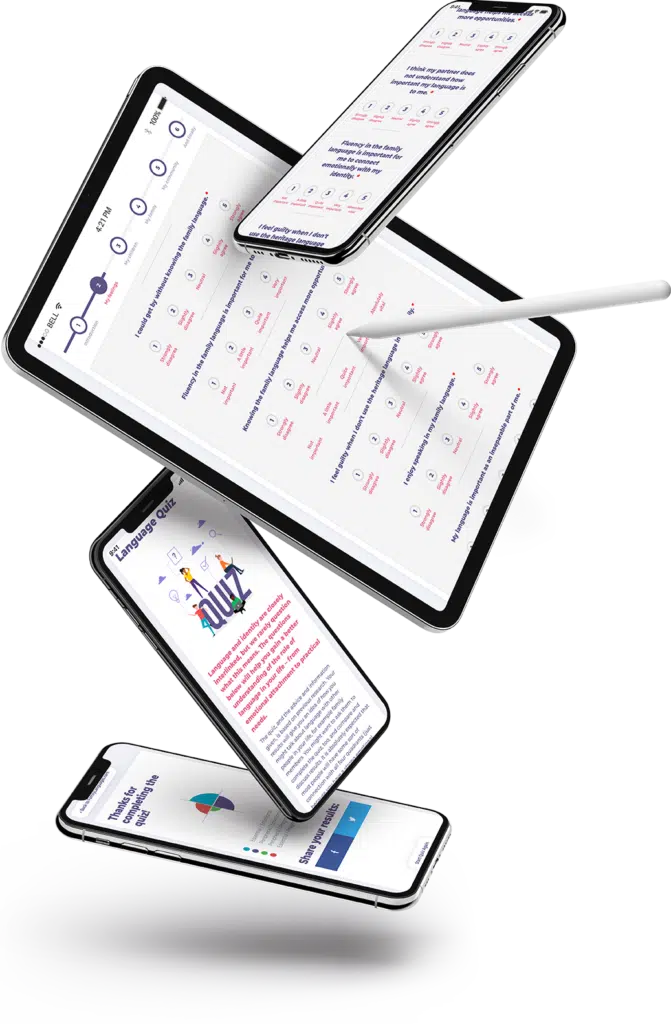
The University of Sheffield.
The University
of Sheffield.
Development of engaging, user-focused quiz to research language and an individual’s attitude towards their home language.
The Problem.
The Languages Education Department within The University of Sheffield had a gap in their understanding of individuals’ attitudes towards their home language.
They identified that research was required in order to address this issue and felt that the development of an online quiz would help them to achieve that.
In order to successfully reach the desired outcome, an engaging, user-focused quiz was needed to research language and an individual’s attitude towards their home language.
The Outcome.
The development of an online quiz, designed with a simple, attractive and clear layout in mind as to not overwhelm the user and to direct attention towards the questions. The language quiz has over 60 questions, each weighted with a value and relating to one of four segments. Upon completion of the quiz, the individual receives a score relating to each of the four segments (the results).
Upon completion of the quiz, a graphical representation of the user’s score is generated and a number of ‘further reading options’ are displayed. These options are dynamic, dependent upon the individual user’s results. The graph comprises four quadrants relating to the four total scores determined from the answers to the questions. The graph animates and shows the user how much of each section is represented.
These results and the quiz itself can subsequently be shared on social media channels.
The Process.
The quiz needed to engage a user from the outset, making user research and engagement of paramount importance.
In order to ensure the best possible User Experience (UX), extensive user testing was undertaken to ensure the final product was fit for purpose and would meet user needs. This included defining the best and most meaningful way to gather and return the results, and deliver a measurable impact by presenting the user with further reading options.
It was also important to encourage sharing to maximise uptake and reliability of the research results, which was achieved through the implementation of simple sharing options. Once the user-centred design was approved, the quiz was developed and deployed, receiving positive user feedback.

Have a project in mind?
Give us a call or email us now to discuss your new project and how we can help.